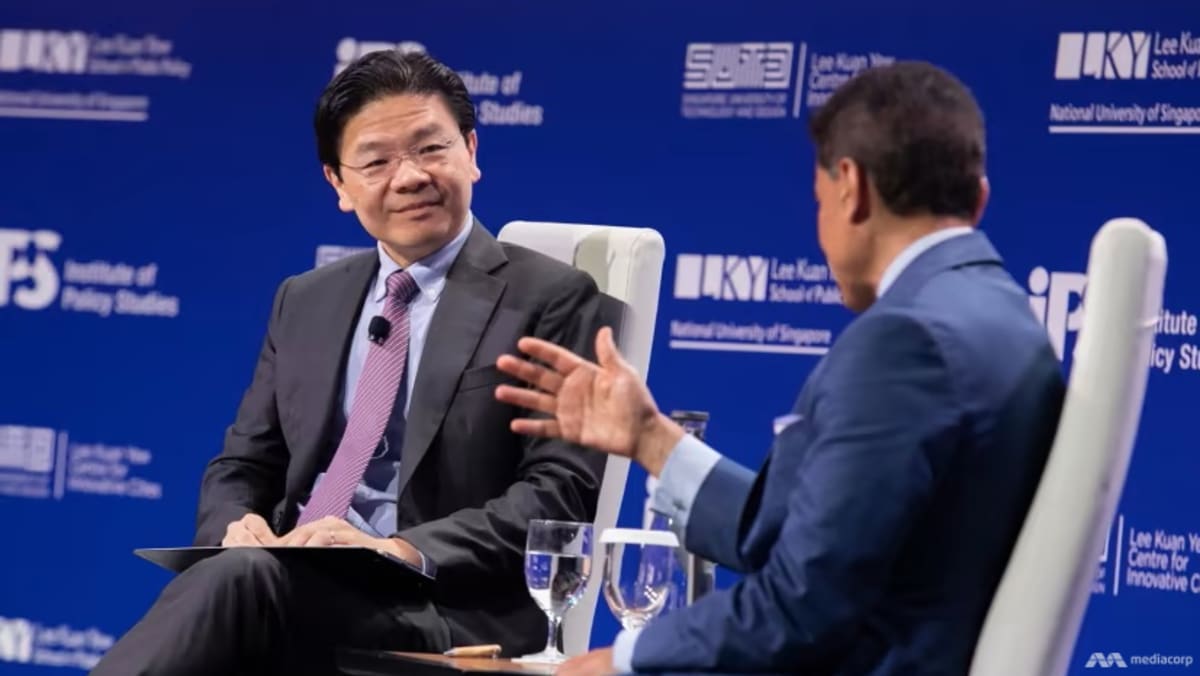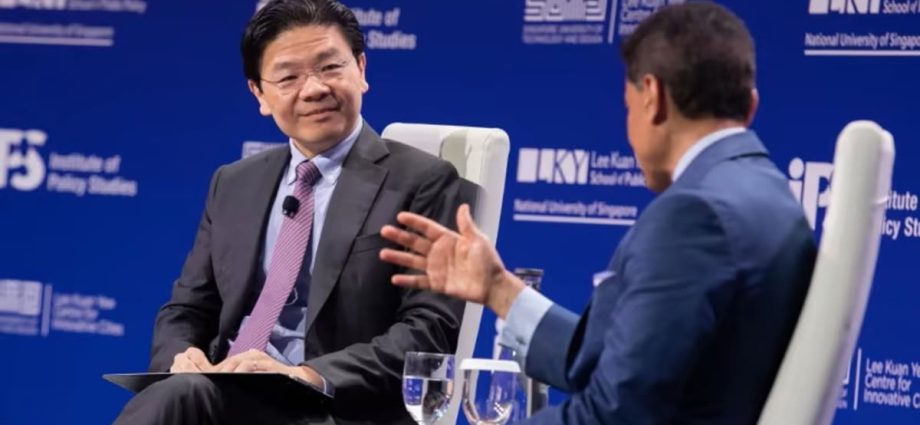
SINGAPORE: A world where geopolitical concerns take precedence over open trade will be one with slower growth and longer-term inflation, Deputy Prime Minister Lawrence Wong said.
Speaking during a dialogue moderated by journalist Fareed Zakaria from American broadcaster CNN at a conference on Monday (Aug 14), Mr Wong also said that Singapore is worried that such a world order is a threat to small states.
The Reinventing Destiny conference was held at the Sands Expo and Convention Centre in Marina Bay to mark the 100th birth anniversary of Singapore’s founding prime minister Lee Kuan Yew.
It was organised by the Lee Kuan Yew Centre for Innovative Cities, Singapore University of Technology and Design, Lee Kuan Yew School of Public Policy and Institute of Policy Studies.
During the dialogue, which will be aired on CNN, Mr Wong spoke on issues such as Singapore’s identity, global trade and the relations between China and the United States.
On the world economy and trade, Mr Wong said that Singapore is worried about how the global multilateral trading system is “coming under siege”.
“There is a change in the global consensus around free trade and win-win economic cooperation. The logic of interdependence used to prevail.”
Mr Wong said that, before, countries did not have to be “friends” to do business with one another and interdependence was promoted for greater stability.
He brought up the McDonald’s “peace theory” of how no two countries that both have McDonald’s franchises have ever gone to war.
“Now, interdependence has become a bad word. People worry about interdependence creating vulnerabilities and that interdependence will become weaponised,” he added.
This runs the risk of shifting to the other extreme, with countries having fewer stakes in one another’s success.
This would result in lesser inhibitions to act unilaterally and it may even embolden states to take more aggressive actions, he said.
“So we really need to think hard about how we continue to strengthen our system of trade, investments, interdependence, while addressing legitimate security concerns that countries may have.”
Dr Zakaria then asked him if that would mean that the international economy is likely to grow slower with countries such as China and US being more “inwardly focused”.
“For sure … there will be a price to pay for a global economy that is organised not by economic efficiency but by geopolitics and security considerations,” he replied.
For instance, should the US choose to import from Mexico in an attempt to import fewer cars from China, Mexico would still have to import more raw materials from China anyway.
“So from an economic point of view, it doesn’t make sense,” he said.
However, this is a world where geopolitics prevails and the price to pay would be greater inefficiency, more cost and longer-term inflation, Mr Wong added.
Shifting to the topic of industrial policies, Mr Wong said that Singapore has been “very careful” in how it uses industrial policies so that the government makes “good use” of public resources.
“If countries enter into industrial policies without the same care, it is very possible that governments would end up spending a lot of money on areas that end up being wasteful and inefficient.”

